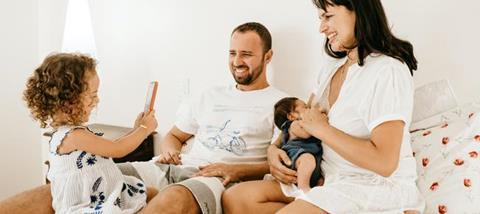
Minute by minute, bulletins about the spread of coronavirus are delivered in real time to our screens. Daily updates from Number 10 are broadcast straight into kitchens and living rooms. We are bombarded with information 24/7.
We want to be kept up to date, but the scale and frequency of information can feel overwhelming. And if that’s true for us as adults, it may be even more so for our children. We’ll put the news on ‘just in the background’ whilst we’re cooking tea, perhaps forgetting that little eyes are watching, and little ears are taking it all in.
With precious little notice, our children are having to adjust to a ‘new normal’. School terms cut short, football, swimming and other letting-off steam opportunities curtailed, playdates now history, and spellings, science and sums around the kitchen table, – with stressed out parents (often trying to get to grips with the lessons themselves). New terms such as ‘self-isolation’ and ‘social distancing’ have entered our family vocabulary, and our children are being asked “Have you washed your hands?” more than at any other time in history.
Their reaction to this abrupt change in routine will depend on their personality and temperament. Testing or anxious children will leave us in no doubt that something is up, with challenging behaviour ranging from yelling to withdrawal. But even the most laid-back or compliant youngster will feel the rug has been pulled out from under their feet. Some will ‘speak it out’ and others will ‘act it out’, but all will have questions that need to be unpacked.
Be prepared
Children have a habit of asking difficult questions at inconvenient times, so it’s worth taking time to work out in advance what we want to say so we’re not caught on the back foot. Take their age and temperament into account and consider talking to other parents to share ideas and approaches.
Choose a good time
I always knew when my mother was going to have “an important conversation’ with me as she would come into my bedroom and shut the door (leaving me running for cover!). A much better method is to try to introduce the subject in an everyday context – doing Lego, for example, cleaning out the hamster, or perhaps at meal times. Whilst many teenagers relish a late-night chat, it might be wise to limit potentially anxiety-causing conversations to earlier in the day so as not to interfere with sleep.
Listen
Rather than overwhelming our children with too much information, ask open questions and then listen to what their concerns really are. Sometimes the issues bothering them won’t be what we expect. A friend who thought she should speak to her son about Covid-19 prepared a science lesson that would have given Einstein a run for his money. It turned out that rather than having questions about virus itself, he was troubled about a much more everyday issue – not being able to go to the coffee shop after school.
Empathise
Try to ‘listen’ for their feelings. Even if we think they’re worrying about something insignificant, rather than a dismissive “Don’t worry’, acknowledging how they feel – “I see you are worried” – will make them feel valued and understood.
Offer reassurance
Whilst drawing a picture to send to her grandmother, seven-year-old Jade finally asked the question that had been weighing on her mind all week: “Mummy, will Granny get ill?” In answering questions like this, rather than focussing on things outside our control, we can emphasise what we do know. Jade’s mum could reassure her that lots of people in the government are working hard to keep us all safe. Granny is staying at home and washing her hands a lot, which means she is likely to stay well. And if she did become ill, there are doctors who will look after her.
If our child is particularly anxious, here are two activities that can help them manage their emotions:
- ‘Worry box’. Decorate a shoe box and cut a slit in the top. Encourage your child to write down or draw their worry, talk about it, and then put it in the worry box – out of sight and out of mind.
- ‘Things-to-look-forward-to box’. Repeat the process, this time asking children ‘post’ the things they’re looking forward to once the period of isolation is over.
Although it’s important to explain things appropriately to our children, it’s also OK to admit that we don’t have all the answers. A hug or a cuddle may be all that’s needed to provide reassurance. When they look back on this time in the future, what will matter most of all is that they knew we were there for them.
Care for the Family is a national charity promoting strong family life and aims to help those who face family difficulties. This blog was originally posted by Care for the Family. You can find out more, and see this blog, by visiting their website.






































